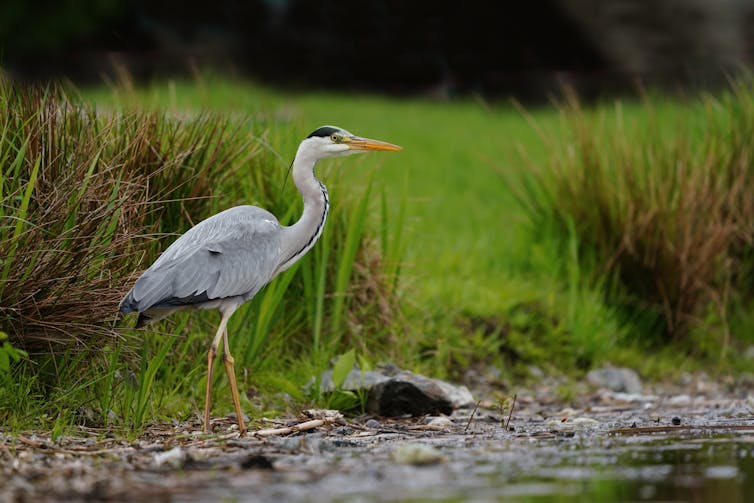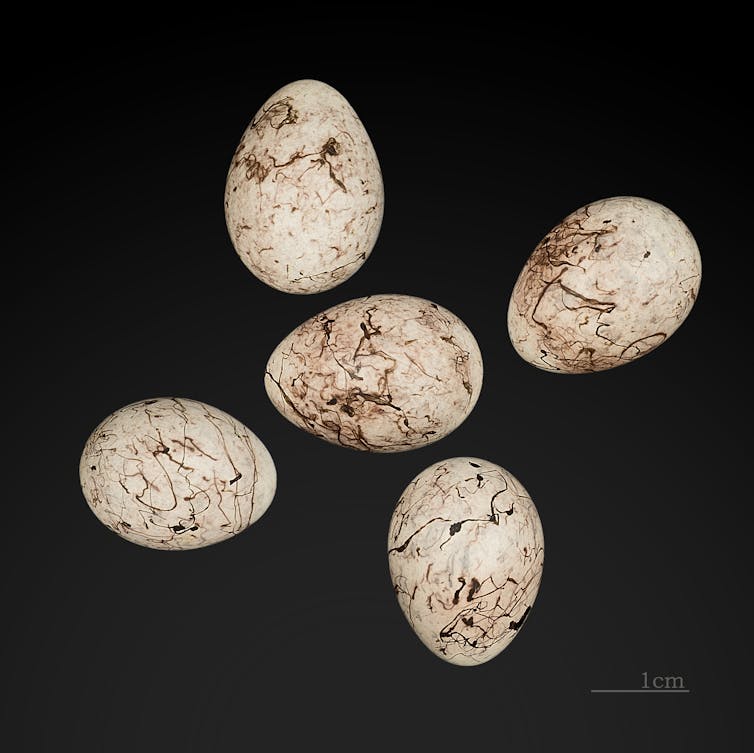I remember my first close encounter with birds. I must have been about three years old and had discovered a blackbird nest unusually accessible in our garden hedge. Still naked and blind, the chicks had not long hatched and I discovered that if I poked the nest, four little heads shot up – gapes open wide for feeding.
Discovering a natural jack-in-the-box was a delight and gave me hours of fun – so much so that I may have caused the parents’ desertion, since I found the chicks dead the next day. I take some small consolation from the likelihood that this encounter helped forge a lifetime of fascination and involvement with birds. It may also have contributed to my sense of responsibility to birds and other creatures.
Birds point us to the existence of another world which, unlike the human one, makes no demands of us but to enjoy it and see that it has a future. It is a world that existed before us, into which humans evolved and on which we all depend.
While not common to all cultures or languages, the distinction between the human and “natural” worlds is deeply embedded in the Anglophone psyche. The importance of birds as a bridge between these worlds is reflected in the names we give them. In the hope of opening that bridge to all, the American Ornithological Society recently announced it would replace all bird species named after people in North America.
The decision was spurred by a widely perceived need to distance ornithology from its history of colonial oppression. Several species names, including McCown’s Longspur, Townsend’s Solitaire and Audubon’s Warbler, evoke men who were involved in slavery and the oppression of the native people of North America.
So, how should these birds be renamed? The history of bird naming in the British Isles offers some solutions.
It takes a village to name a bird
Few common names of British birds are eponymous. Only two breeding species, Montague’s Harrier and Cetti’s Warbler, are named for notable people – the first is rare and the latter a recent colonist to the British Isles.
This indicates that the process of naming was a more organic, “bottom-up” and even democratic process than elsewhere in the British empire. We know of more than 7,000 folk names in English for about 150 species of British bird. Mostly recorded during the 19th century, these names indicate a widespread local naming of birds, such that names might not only be regional but specific to particular villages. For example, the grey heron has 180 recorded English folk names, and the wren 164.

Nevertheless, a strong national connection to a species, such as might be created by a reference in Shakespeare, could override local perceptions. Hence, the nightingale – a common presence in Shakespearean plays and poems – has only two recorded names including nightingale itself, which derives from its Saxon roots meaning “night singer” (from the German nachtigall).
Bird names evoke strong emotional connections – potentially linking us not only with specific encounters with birds, but with the context and people who experienced them. These links can last a lifetime, and English folk names reveal the depth of knowledge of those who coined them.
For example, the name “English mockingbird” for the marsh warbler refers to the fact that its song consists almost entirely of the mimicry of other species. It indicates that whoever coined this name recognised that the bird was singing the songs of other, more familiar species – and the namer knew these songs.
The marsh warbler’s tendency to sing at night – referenced in another name, “fisherman’s nightingale” – may have focused the listener on its song in the stillness of a summer’s evening long ago.
Passed down with care
Many of the folk names given to other species were probably coined by or for children. A strong tendency to include a first name in such names as “Katie wren”, “Fanny redtail” and “Bessy-brantail”, suggests an effort to teach a child the common birds around them.
Names like “scribble-lark” and “scribbling schoolmaster” for bunting species, whose eggs appear to have been written on, suggests (as do many more such names) a fascination with nests and eggs.

The preoccupation with collecting eggs (birdnesting) among country children led to a minor rural economy that stocked the mahogany cabinets of Victorian drawing rooms. We know, however, that despite the plethora of local names, they were handed down from generation to generation with great precision.
As ornithologist G.G. Little noted in an 1878 article entitled Provincial Names of British Birds in The Zoologist magazine:
Has it struck any philologist that names of animals, particularly of birds, whose names are under the protection of the… birdnesting generation, are more likely to be handed down correctly than perhaps any other words…?
These names were largely collected by ornithologists like Little, who wanted to know what birds were present throughout the British Isles. But the superfluity of names posed a problem. Their solution was to select from among the diverse regional names those which they would agree to hold in common for ornithological discourse.
These became the “common” names, now regarded as the standard names. But they were agreed through consent with no intention, as evidenced through numerous bird books of the time, of these superseding or replacing the local names.
That they generally have done reflects not the imposition of names by committee, but the success of ornithology as a democratised volunteer activity in the UK – a process in keeping with the spirit of recent developments in North America.
However subtly, naming has always reflected a cultural context – and renaming can make a positive contribution. It can only be hoped that renaming birds after their own qualities will help to open the wonder and love of birds to all people.
"bird" - Google News
January 03, 2024 at 08:19PM
https://ift.tt/SRln1wW
What makes a good bird name? - The Conversation
"bird" - Google News
https://ift.tt/j3Zqhad
https://ift.tt/ozuyBZq
Bagikan Berita Ini














0 Response to "What makes a good bird name? - The Conversation"
Post a Comment